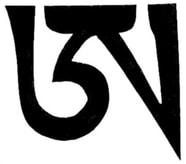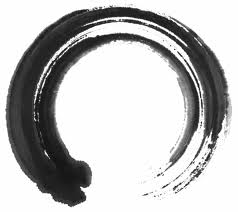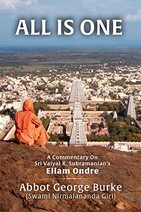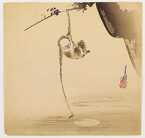This post was originally posted on my Substack page: https://rodneyjowen.substack.com/p/wu
We are surrounded by magic. There is an energy all around us, either waiting to be actualized, raging and roaring with magnificent force, or modulating somewhere in between. Yet, I have stood on the shore of the Atlantic at daybreak and experienced what appeared to be a complete breaking away of this energy. Often, not always, but often, at that moment when night officially becomes day, when the first evidence of the nuclear fusion of our sun becomes visible on the far horizon, the earth seems to stand still—just for a second or two. The wind stops, the gulls get quiet, and that frenetic pulsing that is just beyond common recognition seems to dissipate all together. For a brief, barely noticeable interval time and space revert to a vacuum. I have often sat beside a great flowing river at daybreak when the water appeared like glass. Although I knew it was flowing, it was imperceptible. Once I stood beside Lake Superior at sunset and experienced the same thing. The water was dead-still, the shore silent. I felt as if there was a force beneath the water attempting to suck me in and under. While I was looking at a massive body of still water, I knew beyond a shadow of a doubt that what I was really seeing was a potential powerhouse on temporary hold. In the space of a couple of seconds I was totally aware of the ships and sailors that lay at the bottom and why the original people called it Gitche Gumi, and that the interpretation as Big Water reflects more than it’s physical size. The potential power was nearly overwhelming, but at the same time it was as still as a corpse.
That stillness is a pointer to a larger reality, to Ultimate Reality. Preceding movement is a state of perfect stillness, emptiness, no-thing from which movement, or any-thing and every-thing is birthed. We can catch a glimpse of this if we look closely. Hints are all around us, as noted above. We can experience a reflection of it in meditation and deep dreamless sleep. But those are reflections. Like any symbol they are approximations of a thing. Not that these approximations aren’t valuable, they are priceless. They point to the Ground of All, and if we approach them wisely, they are healing, empowering, enlightening, transforming. But as long as we are embodied we won’t fully experience stillness because being embodied implies movement. Stillness is potential, movement is actualization. And while we are not stillness, like all forms of movement we are birthed from stillness. So it is a fundamental element of what we ultimately are. It is the seed from which we become. We each contain the essence of stillness in our being.
Yet, while we are not the stillness that underlies all creation, we also not the embodiment of actualization. We are not these bodies, nor our thoughts. We are not the energy that animates these thoughts and bodies either. To some degree we are all of that and none of that. I am reminded of story by Thich Nhat Hanh describing the essence of a flower. The flower is not the seed from which it apparently arose; nor the soil in which it grows; nor the rain that watered it; nor the sun that nurtured and energized it. It isn’t any one of these things, but without any one of these things it wouldn’t be a flower. So what is it? What are we?
Honestly, I’m not going to answer that question. Not because I’m dodging the answer, but because I don’t believe there is an answer. But that is something we each must decide. And while I’m not interested in an answer, I do concede there are some mighty powerful pointers in the stillness of dawn and the chaos of the tempest, in the movement of Qigong and the stillness of Zazen, in the depths of sleep and the mystery of love. Time spent trying to define a mystery is time not spent living the mystery. The purpose of life is life itself. That’s enough.




 RSS Feed
RSS Feed
